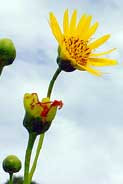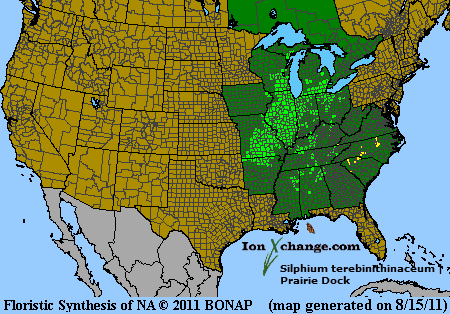 Loading... Please wait...
Loading... Please wait...- Home
- SEEDS
- SEED MIXES
- BUY PLANTS
- Info Request
-
Educational Videos
- Greenhouse Transplanting Demonstration
- Native Seed Cleaning demonstration at Ion Exchange Native Seed and Plant Nursery
- Attracting Butterflies
- Bidens - Bidens cernua Harvest Video
- Big Blue Stem Harvest
- Butterfly Milkweed Video
- Button Blazingstar - Liatris aspera Video
- Buttonbush - Cephalanthus occidentalis Video
- Canada Anemone - Anemone canadensis Harvest Video
- Cardinal Flower - Lobelia cardinalis Video
- Control Burn - Wildflower Field
- Cream Gentian - Gentiana flavida
- Culver's Root - Veronicastrum virginicum Video
- Cup Plant - Silphium perfoliatum Video
- Dormant Seeding | Planting
- Earthyman's Favorite Wildflowers Video
- Eco-Friendly Golf Course Seed Mix
- Floating Islands
- Fringed Loosestrife - Lysimachia ciliata Video
- Giant Yellow Hyssop - Agastache nepetoides Video
- Indiangrass - Sorghastrum nutans Video
- Iowa Prairie Partner Program
- Leadplant - Amorpha canescens (Potted) Video
- Meadow Blazingstar - Liatris ligulistylis
- Midland Shooting Stars - Dodecatheon meadii Video
- Native Plant Nursery Field Irrigation Experiment
- Nodding Onion - Allium cernuum Video
- Ohio spiderwort - Tradescantia ohiensis Video
- Old Man's Beard - Clematis virginiana blooms Video
- Oxeye Sunflower - Heliopsis helianthoides Video
- Prairie Spiderwort - Tradescantia bracteata
- Purple Coneflower - Echinacea purpurea Video
- Rain Garden or Water Garden Video
- Rattlesnake Master - Eryngium yuccifolium Video
- Riverbank Stabilization - Wetland Plants
- Rose Mallow - Hibiscus militaris Video
- Rosinweed - Silphium integrifolium Video
- Royal Catchfly - Silene regia
- Showy Tick Trefoil - Desmodium canadense Video
- Sneezeweed - Helenium autumnale Video
- Swamp Betony - Pedicularis lanceolata Video
- Swamp Milkweed - Asclepias incarnata Video
- Sweet Blackeyed Susan - Rudbeckia subtomentosa Video
- Tall Coreopsis - Coreopsis tripteris Video
- Urban Butterfly Garden
- Wild Bergamot - Monarda fistulosa Video
- Wild Geranium - Geranium maculatum Harvest
- Wild Goldenglow - Rudbeckia lanciniata Video
- Wild Petunia - Ruellia humilis Harvest Video
- Woodland Knotweed - Polygonum virginianum Video
- Yellow Coneflower - Ratibida pinnata Video
- Blog
- Resources
- Policies
Contact Us
Phone:
563-419-0837
or 563-535-7231
Email:
hbright@ionXchange.com
Browse Products
Add to Wish List
You Recently Viewed...
Our Newsletter
Product Description
"Compass Plant, Rosinweed (also refers to S. integrifolium), Turpentine Plant, Polar Plant"
Silphium is an ancient Greek term for "resinous juices". Terebinthenacium is the Latin term for "of turpentine", referring to the turpentine-like odor of this plant.
Common to prairies in the northern areas of the Tallgrass biome. Huge leaves, reaching two feet in length are oval or heart-shaped. S. terebinthenacium can reach 10 feet tall
Native Americans brewed a root tea for lung bleeding, back and/or chest pain, to ease profuse menstruation and to induce vomiting. The smoke from the entire burning plant was inhaled to relieve head colds and ease the effects of neuralgia and rheumatism. Historically, a tea made from the roots of S. lacinatum was used to reduce the swelling of an enlarged spleen, fevers, internal bruises, debility, liver ailments and ulcers. This is a toxic species, but the toxicity is unknown.
|
Edible Uses: Unknown Medicinal Uses:
Other Uses:
|













